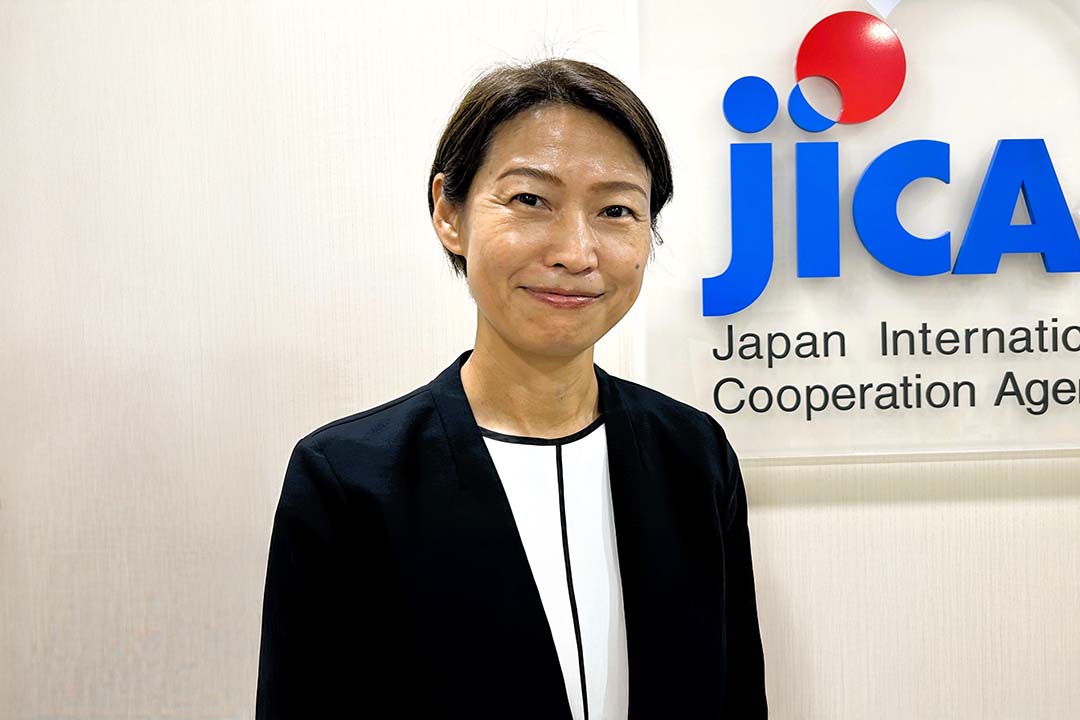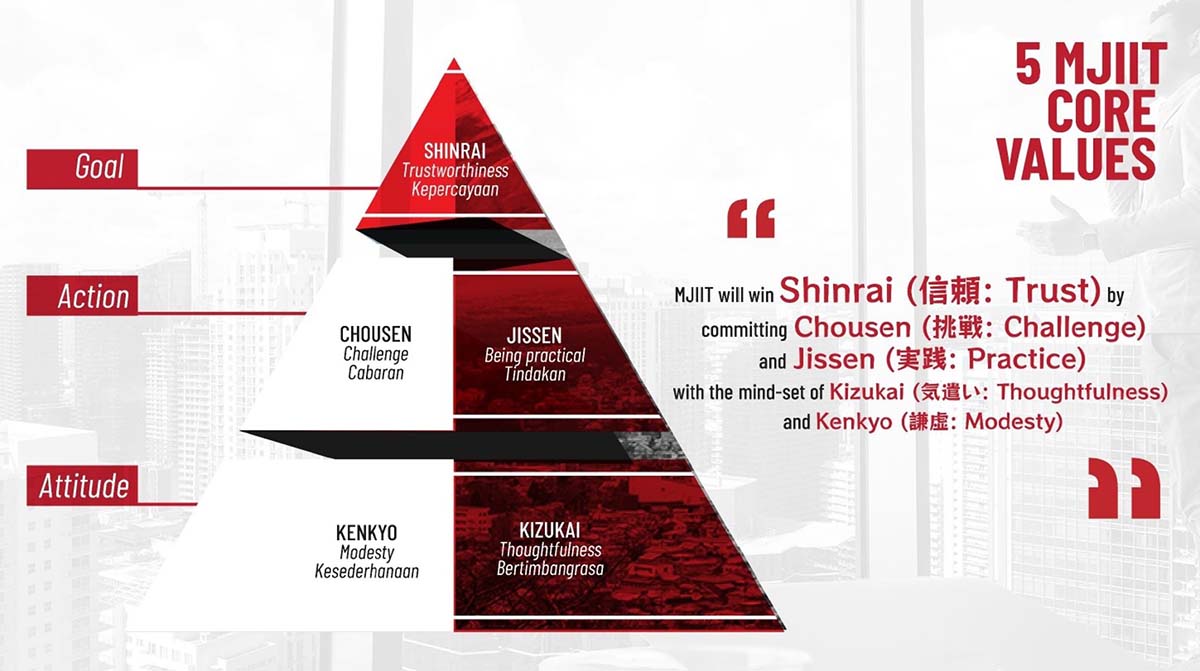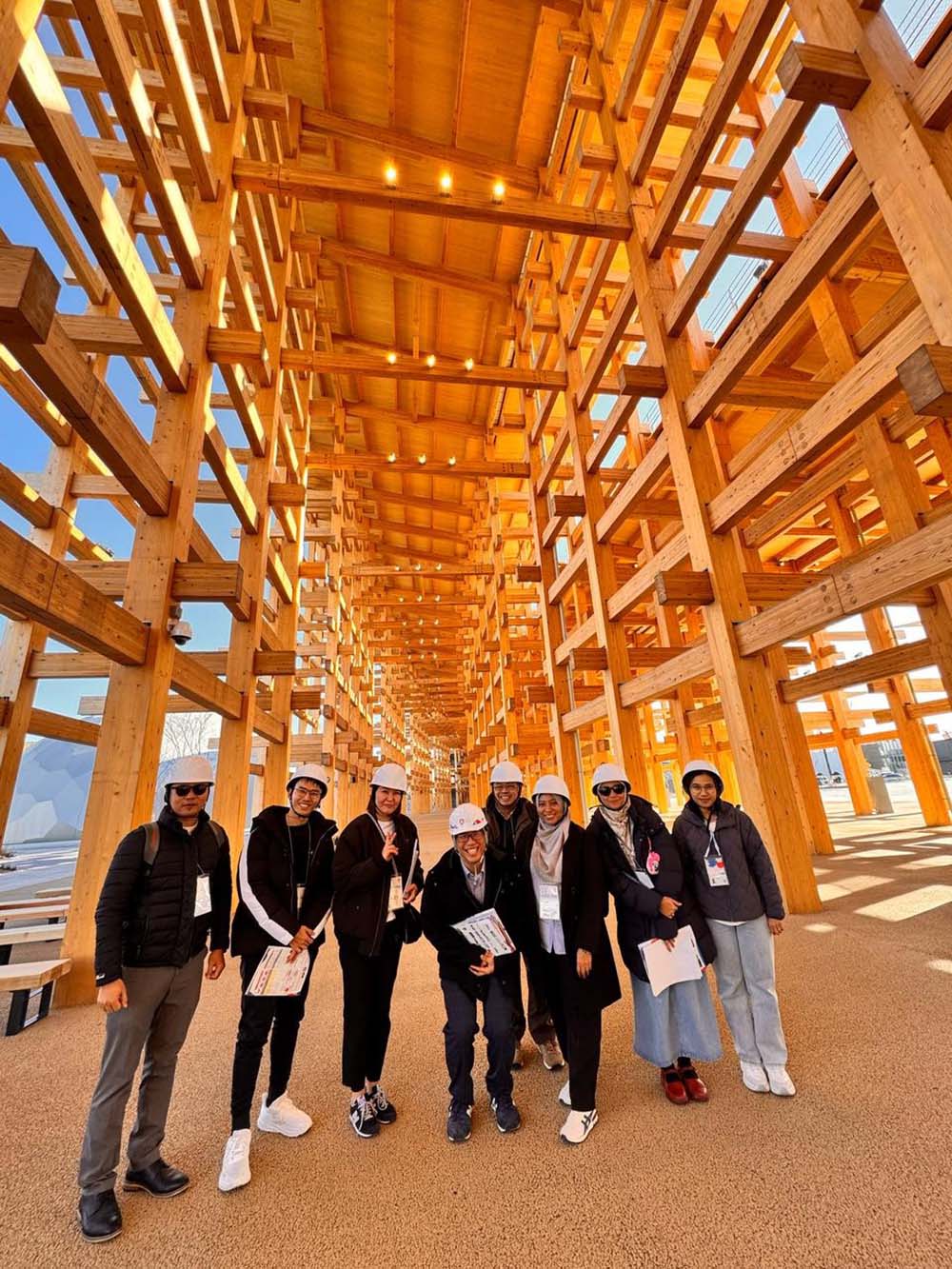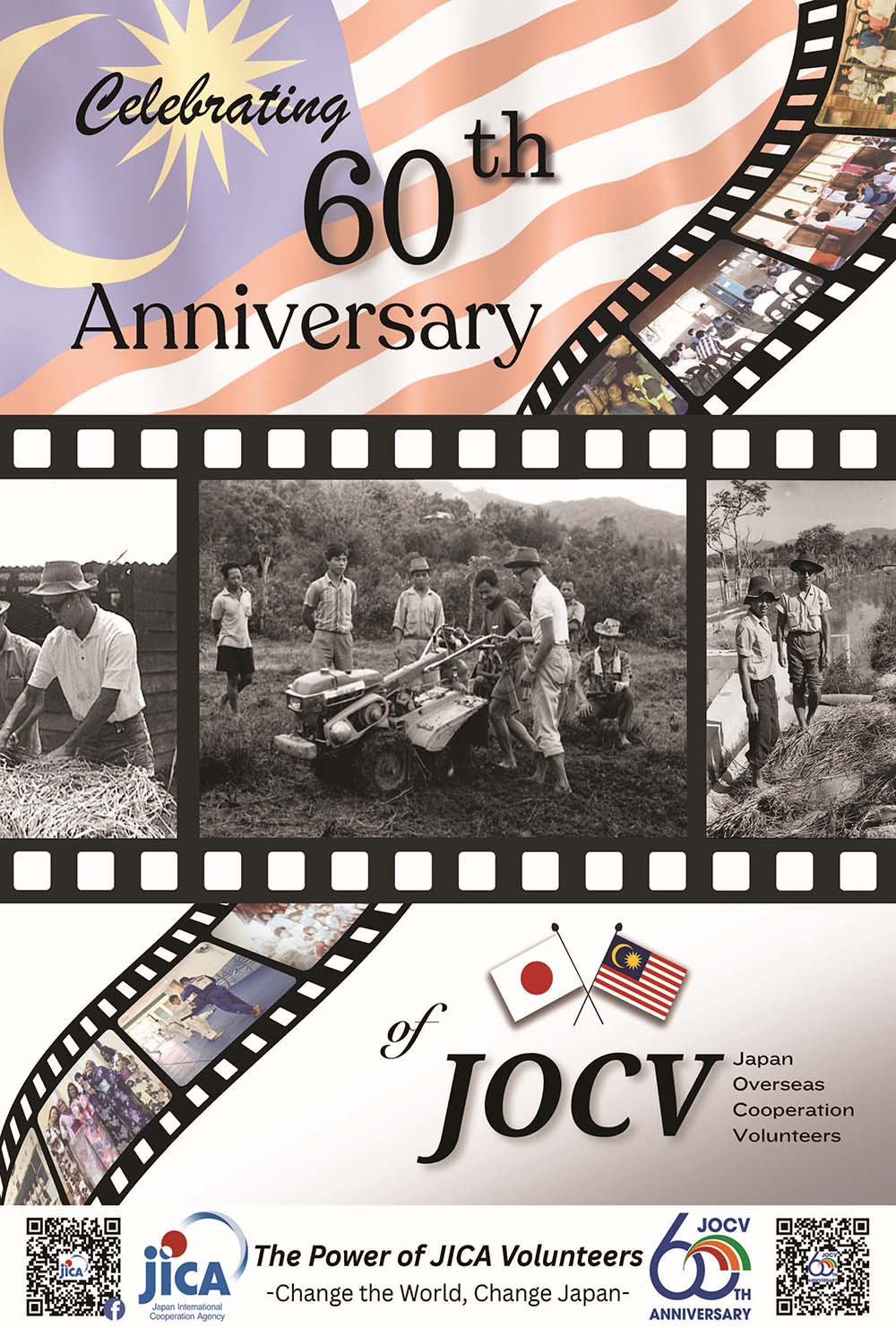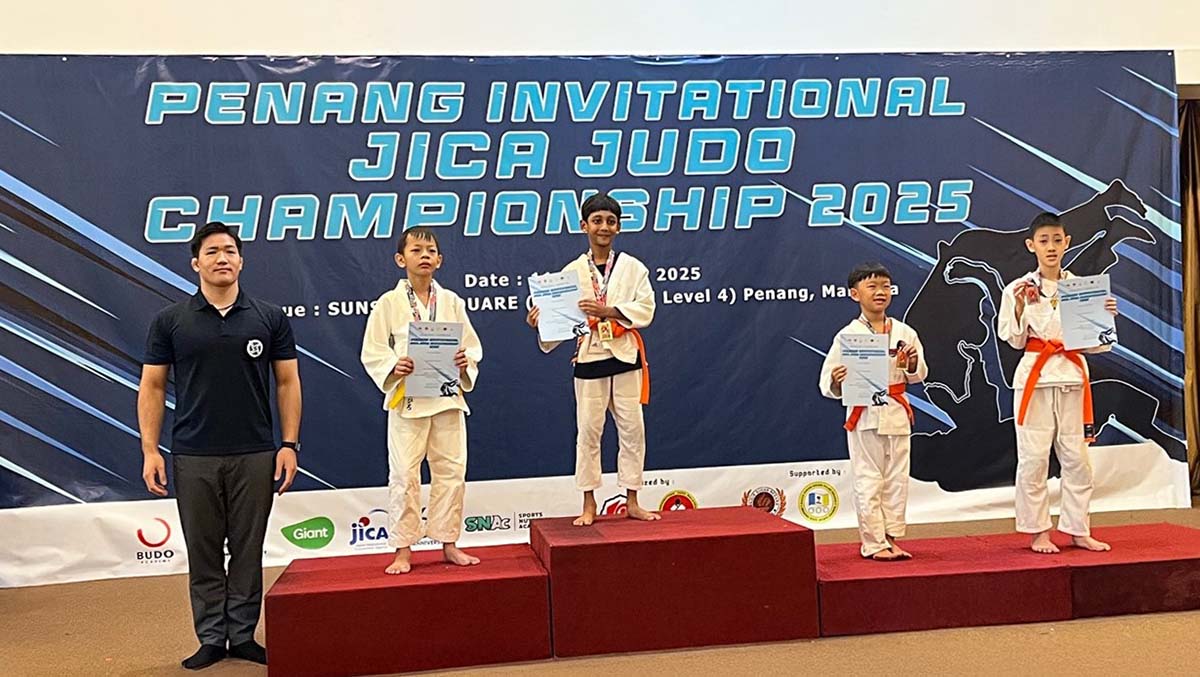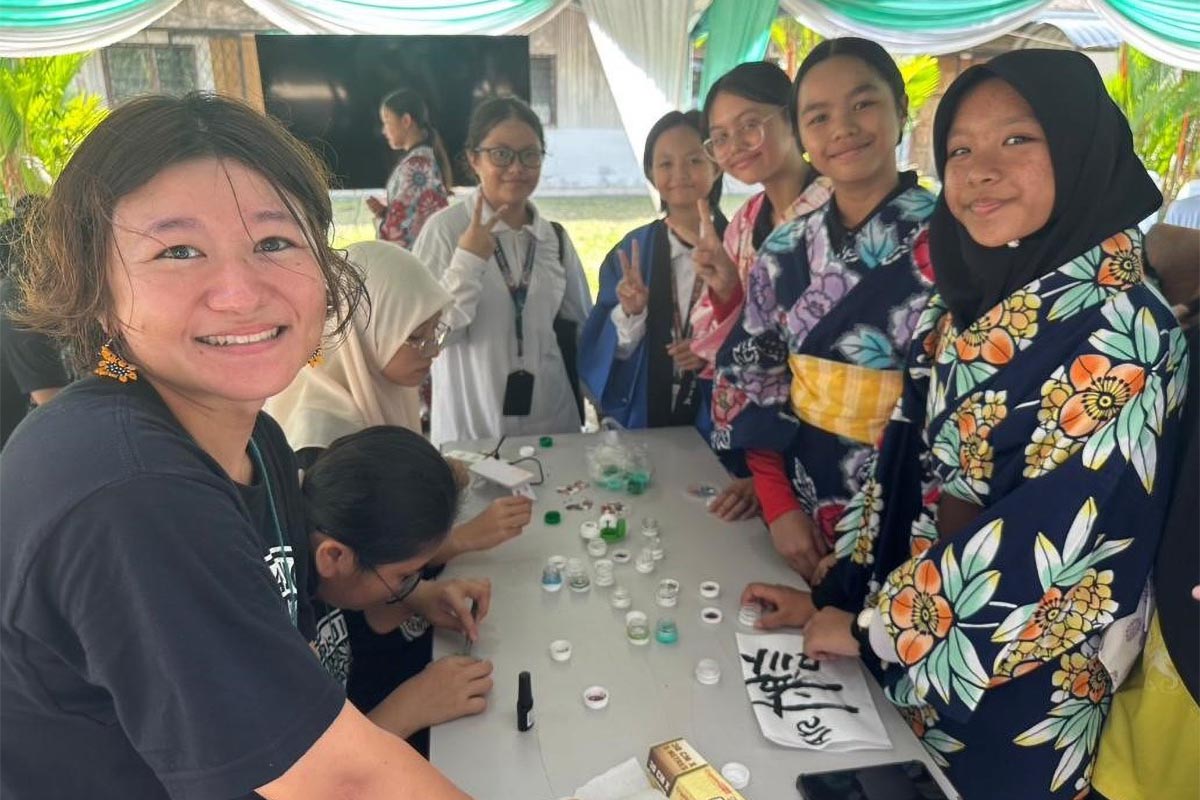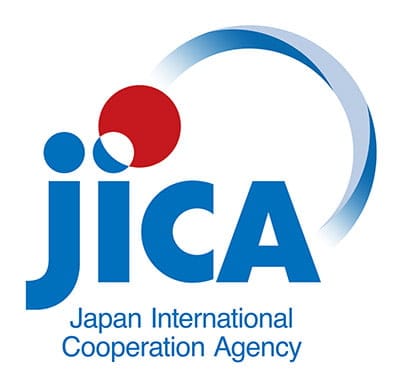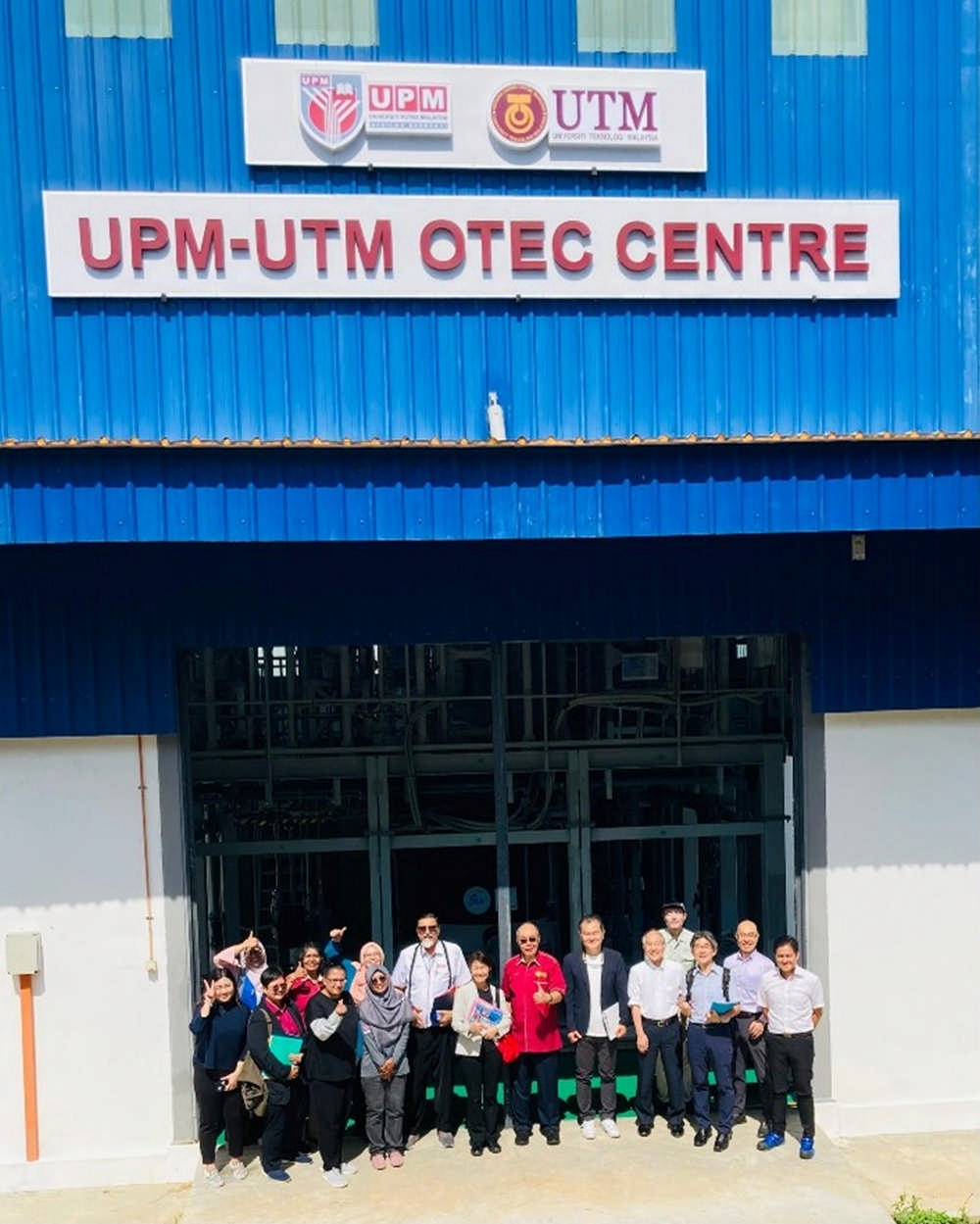JICA Malaysia and Malaysia–Japan Relations
Bridges: What are some significant JICA projects that highlight Malaysia-Japan cooperation, and how does JICA align its programs with Malaysia’s national development plans?
Sugawara: In 2026, Japan’s Official Development Assistance (ODA) will celebrate 70 years of cooperation with Malaysia. Over the past seven decades, Malaysia has achieved significant economic and social development, reflecting the dedication of its people. JICA, as an implementing agency of Japan’s ODA, is proud to have contributed by fostering mutual trust and strong bilateral ties.
JICA’s collaboration with Malaysia includes major infrastructure projects like power plants, highways, the terminal of Kuala Lumpur International Airport (KLIA1), and wastewater treatment facilities, alongside technical cooperation in areas such as environment, education, social welfare, and vocational training.
A flagship example is the Malaysia-Japan International Institute of Technology (MJIIT) at Universiti Teknologi Malaysia (UTM) envisioned by Prime Ministers Tun Dr. Mahathir bin Mohamad and Mr. Junichiro Koizumi in 2001 and officially established in 2011.
JICA supported MJIIT through an ODA loan and technical cooperation, creating a center of excellence that integrates Japanese engineering with Malaysian values. Since its founding, MJIIT has enrolled over 3,500 undergraduate and graduate students, including many international students. It has achieved a 100% graduate employment rate and enhanced UTM’s global rankings. At the core of MJIIT’s success are its five values: SHINRAI (trust), CHOUSEN (challenge), JISSEN (practice), KIZUKAI (thoughtfulness), and KENKYO (modesty).
Currently, JICA is supporting the Malaysia-Japan Linkage Office (MJL) at MJIIT to strengthen partnerships with Japanese universities and industries, positioning the institute as an ASEAN education and research hub. One notable initiative is the Euglena–UTM Satellite Lab, launched in 2023, in partnership with Japan’s Euglena Co., Ltd. Located in MJIIT’s Algae and Biomass Research Laboratory, the lab focuses on tropical biomass research with potential applications in biofuels, nutraceuticals, and sustainable innovation.
These projects are designed through close relationships with Malaysian counterparts, ensuring alignment with national development plans and their priorities. JICA’s ongoing role is to support such platforms that promote partnerships and drive a resilient, low-carbon, sustainable future across ASEAN.
Expo 2025 Osaka
How can events like the Osaka Expo foster stronger international relations and sustainable development?
World Expositions serve as dynamic platforms for showcasing innovation and fostering global dialogue. The Expo 2025 Osaka, Kansai, Japan (the Expo 2025) themed “Designing Future Society for Our Lives,” will bring together cutting-edge technology and best practices to tackle shared global challenges. In March 2021, JICA partnered with the Japan Association for the 2025 World Exposition to enhance cooperation, build momentum for the Expo, and contribute to the SDGs and Society 5.0. Under this partnership, JICA is actively collaborating in various ways, such as supporting developing countries in preparing their exhibitions, hosting programs during the Theme Weeks, and organizing a Junior SDGs Camp.
The Expo also offers a valuable opportunity for human resources development. In collaboration with the Japan Association for the 2025 World Exposition, JICA is organizing a course titled “Capacity Building of Managing Expositions and International Conferences through Expo 2025 Osaka, Kansai, Japan.” The course invites ASEAN and Mongolian officers responsible for international events, tourism, and the post-SDGs agenda implementation.
From February to October 2025, Malaysian officials will participate in the program. Although this initiative may seem behind-the-scenes, it is well received, providing young officers with valuable exposure and knowledge, especially as Malaysia hosts international events during its ASEAN Chairmanship in 2025. The course is expected to further strengthen Malaysia’s capacity to host world-class events.
Below is a testimonial from one of the Malaysian participants.
The JICA training program has been a truly valuable and enriching experience for us. We found the sessions not only educational but also highly practical. Throughout the program, we gained a deeper understanding of key topics such as project planning, implementation strategies, and the importance of thorough preparation, especially in the context of Expo 2025 Osaka. The knowledge shared, along with real case studies, gave us clearer insights into how successful development projects are executed.
More importantly, this training, organized by JICA encouraged us to reflect on how we can adapt and apply these approaches in Malaysia. We were inspired by the experiences shared by Japan and other participating countries, which motivated us to think critically about improving our local systems. This program has broadened our perspectives and equipped us with valuable tools to contribute more meaningfully in our respective fields back home.
60 Years of JOCV
What are some notable milestones in the 60-year history of JOCV?
The Japan Overseas Cooperation Volunteers (JOCV) program celebrates its 60th anniversary in 2025. Since its start in 1965, when 29 volunteers were dispatched to five countries including Malaysia, over 57,000 JOCVs have served in 99 countries worldwide.
In Malaysia, the initial five volunteers arrived in January 1966, specializing in physical education, rice farming and vegetable farming. Over six decades, a total of 1,666 volunteers have worked in diverse fields throughout Malaysia.
The top areas include Japanese language education (160 volunteers), early childhood education, electrical and electronic, agriculture, environmental education, occupational therapy, automotive maintenance, and physical education.
A major milestone was the expansion of Japanese language education after the launch of the Look East Policy by Tun Dr. Mahathir in 1981. JOCVs were instrumental in establishing Japanese language courses in public secondary schools as demand grew alongside industrial development.
Many Malaysians today recall how JOCVs shaped their lives. One staff member at JICA Malaysia Office, for example, recalls being inspired by a Japanese Language Education volunteer at his boarding school in Kuala Kangsar, which ultimately shaped his lifelong dedication to building bridges between Malaysia and Japan.
In recent years, JICA has emphasized deploying skilled engineers to support TVET, while expanding into social welfare services. Nearly half of the current 20 JOCVs in Malaysia work in areas such as elderly care, support for persons with disabilities, and special education.
An emerging focus currently is sports. A judo coach is now posted to the Malaysia Judo Academy in Penang, and additional volunteers in gymnastics and physical activity are expected.
The JOCV program fosters grassroots partnerships by embedding volunteers in local communities where they live, communicate in Malay, and work alongside Malaysian people, forging deep human connections. Many volunteers reflect that they “learned more than they taught” — capturing the spirit of mutual growth and friendship that defines JOCV’s enduring legacy in Malaysia.
Malaysia’s ASEAN Chairmanship in 2025
What priorities and initiatives is Malaysia focusing on during its ASEAN Chairmanship in 2025, and how is JICA Malaysia supporting the country in achieving its ASEAN agenda?
As ASEAN Chair in 2025, under the theme “Inclusivity and Sustainability,” Malaysia is spearheading an ambitious agenda focused on enhancing regional trade and investment, advancing digital transformation, improving connectivity, and promoting sustainability.
JICA Malaysia proudly supports these initiatives, focusing on maritime safety and security to keep the region free and open. Since 2005, JICA has collaborated with the Malaysian Maritime Enforcement Agency (MMEA) by dispatching Japan Coast Guard (JCG) officers as JICA long-term experts, thereby enhancing Malaysia’s maritime safety capabilities.
On June 25, 2025, a joint maritime exercise with JCG’s MIZUHO and MMEA’s BANGGI addressed maritime crime and smuggling, strengthening bilateral cooperation. Prior to the exercise, JICA organized training on arresting techniques and Long-Range Acoustic Devices (LRAD) aboard the BANGGI, in collaboration with MMEA and JCG’s Mobile Cooperation Team.
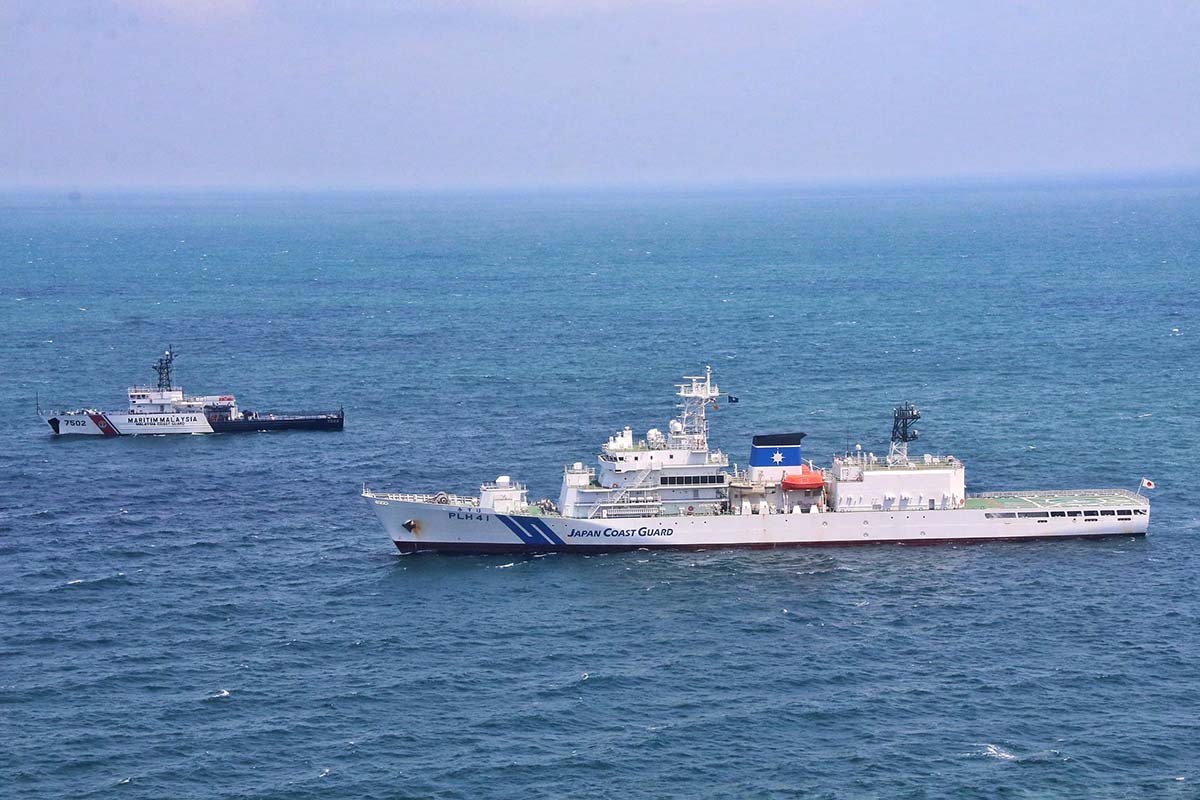
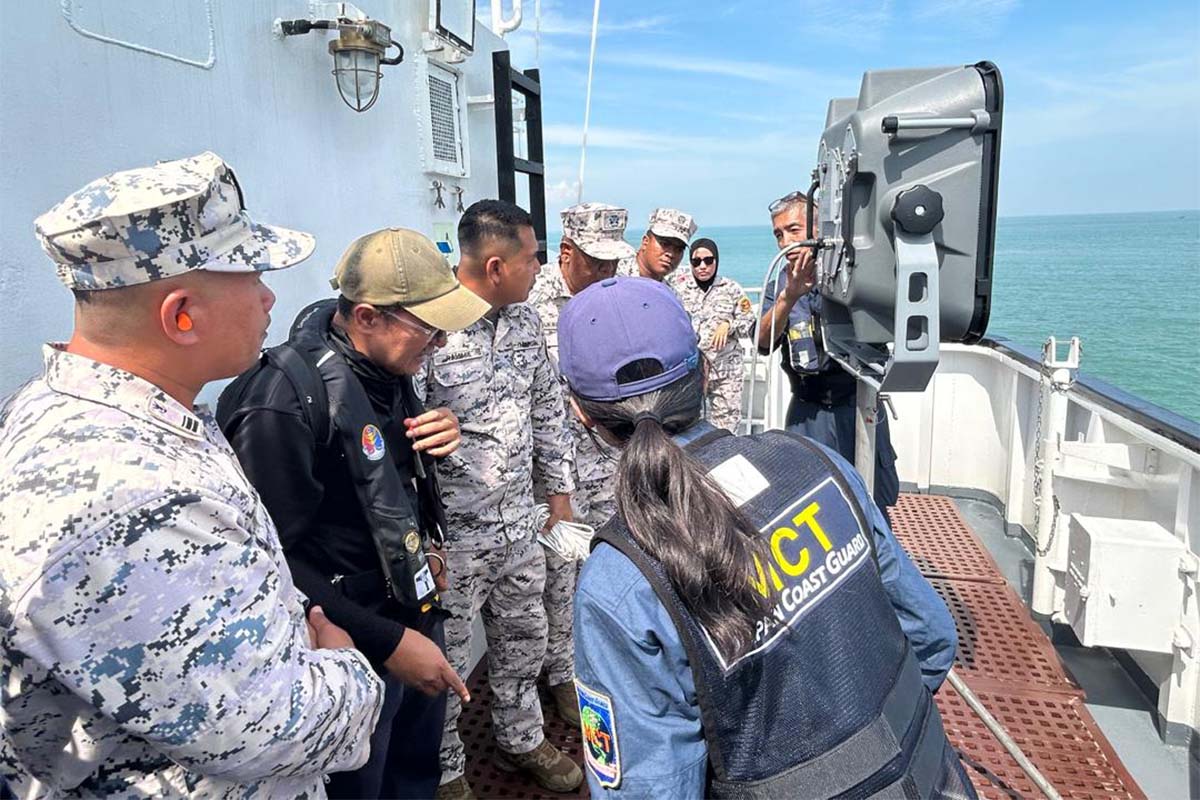
These exercises demonstrate operational readiness and a growing partnership based on trust and commitment. As head of JICA Malaysia, I am honored to witness the development of mutual trust over the years. In close collaboration with JCG, JICA will continue enhancing maritime agency capacities in the region, contributing to a stable and prosperous Indo-Pacific.
As Malaysia and Japan step into the next chapter of partnership, JICA remains committed to walking side by side — not only as a development partner, but as a co-creator of a better, more sustainable future.
Minako Sugawara, Chief Representative of JICA Malaysia Office
JICA Malaysia’s Vision for the Future
How does JICA Malaysia envision its role in Malaysia’s sustainable development over the next decade?
As Malaysia advances toward high-income status, JICA aims to be a long-term partner in addressing global challenges through cooperation and innovation.
Our vision is anchored in two principles: co-creation and collaboration.
- Co-creation involves developing solutions through joint research and innovation by Japanese and Malaysian institutions.
- Collaboration emphasizes learning and acting together as equals, especially in South-South and Triangular Cooperation.
One example of co-creation is JICA’s promotion of joint international research under the Science and Technology Research Partnership for Sustainable Development (SATREPS). Since 2008, about 200 SATREPS projects have been implemented globally, including 10 in Malaysia, focusing on renewable energy, biodiversity, infectious diseases, and disaster risk reduction.
A key achievement is the SATREPS project, titled “Development of Advanced Hybrid Ocean Thermal Energy Conversion (OTEC) Technology for Low Carbon Society and Sustainable Energy System: First Experimental OTEC Plant of Malaysia.” In 2024, this project successfully launched the world’s first Hybrid Ocean Thermal Energy Conversion (H-OTEC) experimental plant in Port Dickson, Negeri Sembilan, through collaboration among Universiti Teknologi Malaysia, Universiti Putra Malaysia, and Japan’s Saga University. H-OTEC is an innovative model that utilizes the temperature difference between warm surface seawater and cold deep seawater to simultaneously generate electricity, desalinate water, and enable the versatile use of deep cold seawater for aquaculture, agriculture, data center cooling, and more. As Malaysia is one of the countries with high potential for OTEC, I hope the H-OTEC model will be brought into practical application in Malaysia in the near future, which would advance energy transition and the blue economy.
Another collaboration example is JICA’s Third Country Training Programme (TCTP), co-funded with Malaysia’s Technical Cooperation Programme (MTCP) of the Ministry of Foreign Affairs, Malaysia. Since 1992, this initiative has empowered thousands of participants from Asia, Africa and the Middle East with training in areas such as cybersecurity, renewable energy, trade promotion, taxation, agriculture, and vocational education.
In 2024, the program introduced a new course on Muslim-Friendly Hospitality Services, developed with the Standard and Industrial Research Institute of Malaysia (SIRIM) Academy. Welcoming participants from Central and Southeast Asia, this course aims to deepen understanding of the benefits and objectives of the Muslim Friendly Hospitality Services standard. It also explores how Malaysia and Japan integrate these services into the tourism market. Continuing until 2026, it aims to enhance tourism industries by attracting more Muslim tourists.
Through these efforts, JICA, in partnership with Malaysian various institutions, has contributed to address common global challenges.
As Malaysia and Japan step into the next chapter of partnership, JICA remains committed to walking side by side — not only as a development partner, but as a co-creator of a better, more sustainable future.

